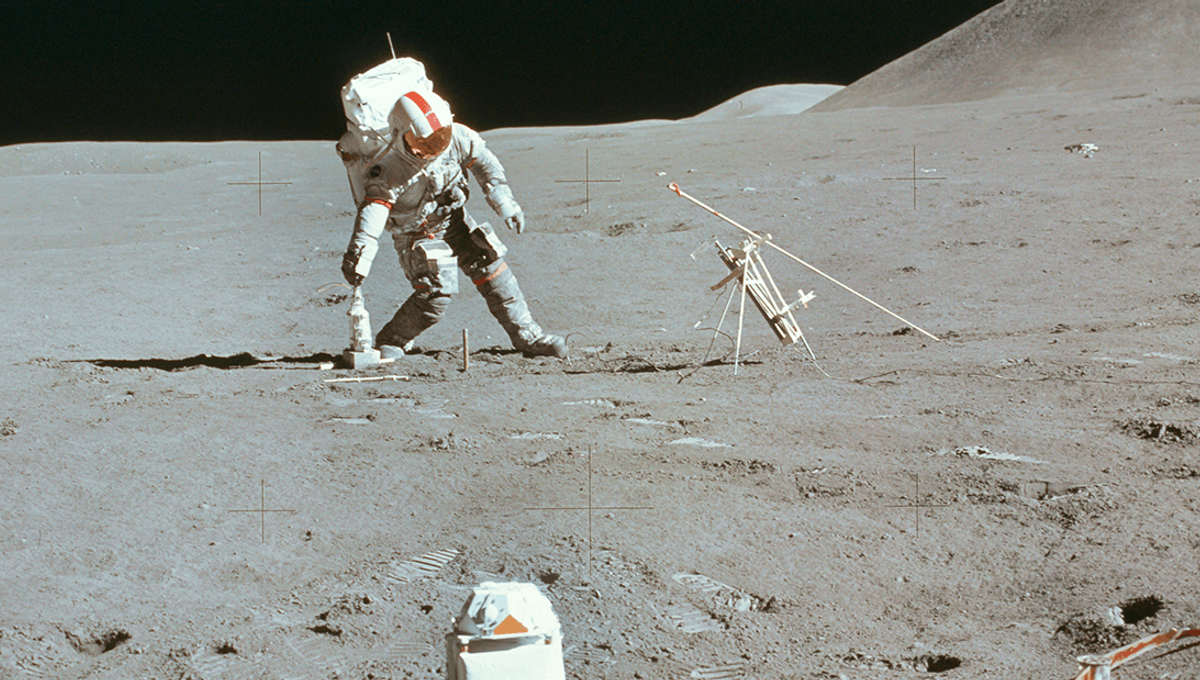
A new study has precisely calculated how fast time on the Moon goes compared to time on Earth, and the Solar System’s barycenter.
Time passes at different rates for different observers, depending on their relative speeds and their proximity to (and strength of) nearby gravitational fields. This doesn’t normally figure into your everyday calculations. If you want to meet someone next Tuesday, you don’t need to worry about your clocks being all that different – unless, in the intervening days, one of you spends that time flying around at relativistic speeds, or on a planet or Moon with vastly different gravity.
This is a problem for NASA and other space agencies, however, as humanity aims at creating bases on the Moon and Mars. Currently, there is no agreed time zone on the Moon. Uncrewed missions generally use the time corresponding to the craft’s country of origin, while the crewed Apollo missions used Ground Elapsed Time (GET), counting from the moment of launch. As the Moon becomes more full (of robots, and then, fingers crossed, humans) this could pose some problems that the US hopes to overcome by establishing a Coordinated Lunar Time.
“The establishment of a standardized lunar time is essential for synchronizing activities and operations on the Moon,” the new paper posted to pre-print server arXiv, which has not yet been peer-reviewed, explains.
“With missions involving multiple landers, rovers, and orbiters, having a common time reference ensures that all units can coordinate effectively, avoiding conflicts and enhancing collaboration. Accurate timing is crucial for communication between Earth and lunar missions, facilitating reliable data transmission and reception, and ensuring that autonomous systems can operate seamlessly.”
In the new paper, the team calculated the relative speed of time on the surface of the Moon, Earth, and at the solar system’s barycenter, the common center of mass of the Solar System.
“Although relativistic time transformations between the Solar System Barycentric (SSB) coordinate reference frame and the surface of the Earth are familiar, an analogous transformation for the surface of the Moon has not been established,” the team writes. “In particular, the constants that describe the behavior of the two time scales as time progresses are needed.”
According to the team’s calculations, time on the lunar surface ticks by at 0.0000575 seconds faster than on the surface of the Earth per day. For ease of calculation, it would take around 100,000 days (or about 274 years) for someone on the Moon to age 5.75 seconds more than somebody on Earth.
That doesn’t sound like a whole lot to worry about, but if the difference is not accounted for it could cause problems in lunar operations.
“Failing to account for the discrepancy between a transmitter clock on the Earth and how it is perceived by a receiver on the Moon will result in a ranging error,” Arati Prabhakar, Assistant to the President for Science and Technology and Director, Office of Science and Technology Policy, wrote in a memorandum instructing NASA and other agencies to work together to create the new Moon time system. “Precision applications such as spacecraft docking or landing will require greater accuracy than current methods allow.”
More discussion and calculations will take place before the establishment of coordinated lunar time, and we will have to see the exact system that NASA and other space agencies come up with. One thing that NASA is clear on already, however, is that the Moon, with its 29.5 Earth days-long days, will not have to endure daylight savings time.
The paper is posted to the pre-print server arXiv.
Source Link: We Now Know How Much Faster Time Ticks By On The Moon